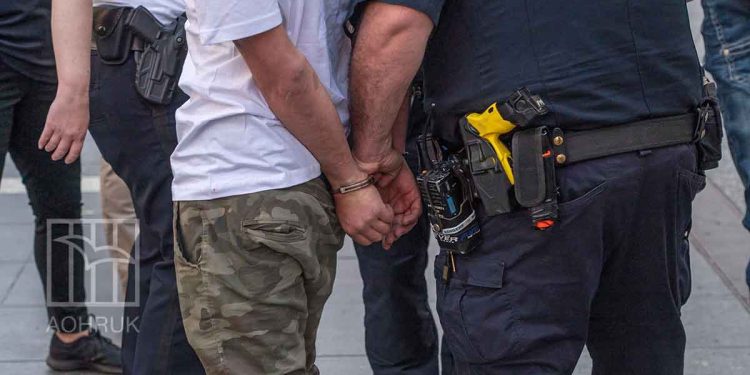Israeli forces have intensified a large-scale arrest campaign in the occupied West Bank, detaining at least 40 Palestinians over the weekend in a series of raids that included children, women, and elderly individuals. The operations, which took place in multiple areas including Ramallah, Jenin, Nablus, and Hebron, have been described by rights observers as part of a broader policy of collective punishment and systemic targeting of Palestinian civil society amid the ongoing war in Gaza.
According to local sources, the arrests began on Saturday evening and continued through Sunday morning, involving night-time incursions into residential areas. Security forces reportedly surrounded neighbourhoods, forcibly entered homes, and detained individuals in front of their families. Many detainees were subjected to hours of physical intimidation and verbal abuse, often without being presented with legal documentation or official charges.
The arrests were not confined to so-called “security operations” but were described as punitive measures that targeted individuals arbitrarily. Among those detained were former prisoners, political activists, and family members of individuals already imprisoned or killed in previous raids. These practices were accompanied by widespread destruction of property and the use of field interrogations—procedures that human rights monitors have consistently denounced as legally unfounded and a means of extracting forced confessions.
In numerous documented instances, Israeli forces used detainees as leverage, holding them in undisclosed locations to pressure relatives to surrender or provide information. Legal observers have expressed alarm over the use of such tactics, which violate the prohibition on collective punishment and contravene basic international standards prohibiting torture and coercion.
The current wave of arrests has been widely interpreted as an effort to weaken the social and political fabric of Palestinian society. By targeting political leaders, activists, and ordinary citizens alike, the arrests aim to suppress expressions of dissent and reinforce military control over the population. In tandem with other coercive policies—such as home demolitions, checkpoints, and movement restrictions—these mass detentions appear to be part of a strategy to fragment communities and deter collective mobilisation.
The escalation in arrests also coincides with the broader military campaign in the Gaza Strip. Since the start of hostilities on 7 October 2023, over 17,500 Palestinians in the West Bank have been arrested, including a significant number of minors and women. The majority have not been granted fair trials or due process. Many are reportedly held in overcrowded facilities under harsh conditions, where instances of medical neglect, solitary confinement, and mistreatment are widespread.
Rights groups continue to warn that the current conditions of detention in Israeli facilities fall far below international human rights standards. The cumulative impact of arbitrary arrests, enforced disappearances, and the use of violence against detainees has created a climate of fear and repression across the occupied West Bank.
As military operations persist and arrest campaigns expand, calls are growing for international accountability and the urgent protection of Palestinian civilians under occupation.


























